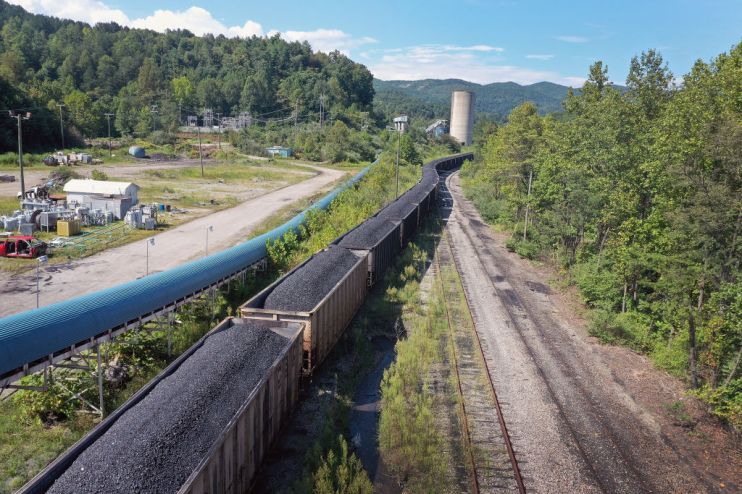
From coal to hydrogen: an old mode of transport that’s back in fashion

MyStory: In the second in a new series of stories about looking beyond profit, Schroders’ Nicholette MacDonald-Brown explains how French train manufacturer Alstom changed its spots.
In the early twentieth century rail was a dirty business, burning coal and competing with other transport on the basis of speed, price and luxury. Pollution wasn’t a factor.
French train builder Alstom produced steam engines in the 1920s and in due course replaced them with diesel. As train travel faced stiffer competition from cars and cheap air travel, Alstom diversified into energy and ship-building.
Today, trains are enjoying a revival. Travellers appreciate their comfort and speed. The industry promises to be more profitable. But that’s only half the story.
Nicholette MacDonald-Brown, Head of European Blend Equities, explains: “Alstom is a business that’s changed its spots. It sold its troubled energy business in 2015 and has settled down as a focused railway business. Today it looks set to benefit from plans to promote rail as a sustainable and safe mode of transport. There are two strands to this positive. One is that train technology is itself becoming far cleaner and more efficient. But the other part of the story is that more people and more freight are finding their way onto railways instead of using dirtier and more costly alternative transports.”
Overall demand for the shipment of people and goods globally is expected to rocket in the coming decades. Train travel will benefit. And tracks are being laid at breakneck speed to meet that demand. In China, more high-speed railways were built in a decade than exist in the whole of western Europe. New lines are being laid in Africa and the US, too.
Discover more from Schroders:
– Learn: What 175 years of data tell us about house price affordability in the UK
– Read: This business was built on consumption. Now its primary focus is energy conservation
– Watch: The telecoms business which pioneered a payment system lifting thousands out of poverty
Nicholette says: “Rail has the lowest carbon footprint amongst all major means of transport – rail travel has only an eighth of the carbon footprint of air travel and a third of road. As governments and companies live up to their emission-reduction targets, rail should benefit.
She continues: “Surprisingly, even airlines are encouraging customers to shift some of their travel to rail. KLM for example announced in 2019 that it wanted to encourage passengers to ‘make responsible decisions about flying’.”
Technology has been advancing too. Alstom has developed hydrogen-powered trains, which release only water as exhaust. They are already operating in Germany and other countries.
“Alstom’s Coradia iLint, the world’s first hydrogen powered train, can run for 600 miles on a single tank,” Nicholette says. “In the face of the climate crisis, demand for decarbonisation across transport is rapidly accelerating. Alstom is in a good place to benefit financially as these trends grow. And the environment benefits too.”
- To discover more about how Schroders is investing beyond profit visit their website.
Important Information: This communication is marketing material. The views and opinions contained herein are those of the author(s) on this page, and may not necessarily represent views expressed or reflected in other Schroders communications, strategies or funds. This material is intended to be for information purposes only and is not intended as promotional material in any respect. The material is not intended as an offer or solicitation for the purchase or sale of any financial instrument. It is not intended to provide and should not be relied on for accounting, legal or tax advice, or investment recommendations. Reliance should not be placed on the views and information in this document when taking individual investment and/or strategic decisions. Past performance is not a reliable indicator of future results. The value of an investment can go down as well as up and is not guaranteed. All investments involve risks including the risk of possible loss of principal. Information herein is believed to be reliable but Schroders does not warrant its completeness or accuracy. Some information quoted was obtained from external sources we consider to be reliable. No responsibility can be accepted for errors of fact obtained from third parties, and this data may change with market conditions. This does not exclude any duty or liability that Schroders has to its customers under any regulatory system. Regions/ sectors shown for illustrative purposes only and should not be viewed as a recommendation to buy/sell. The opinions in this material include some forecasted views. We believe we are basing our expectations and beliefs on reasonable assumptions within the bounds of what we currently know. However, there is no guarantee than any forecasts or opinions will be realised. These views and opinions may change. To the extent that you are in North America, this content is issued by Schroder Investment Management North America Inc., an indirect wholly owned subsidiary of Schroders plc and SEC registered adviser providing asset management products and services to clients in the US and Canada. For all other users, this content is issued by Schroder Investment Management Limited, 1 London Wall Place, London EC2Y 5AU. Registered No. 1893220 England. Authorised and regulated by the Financial Conduct Authority.